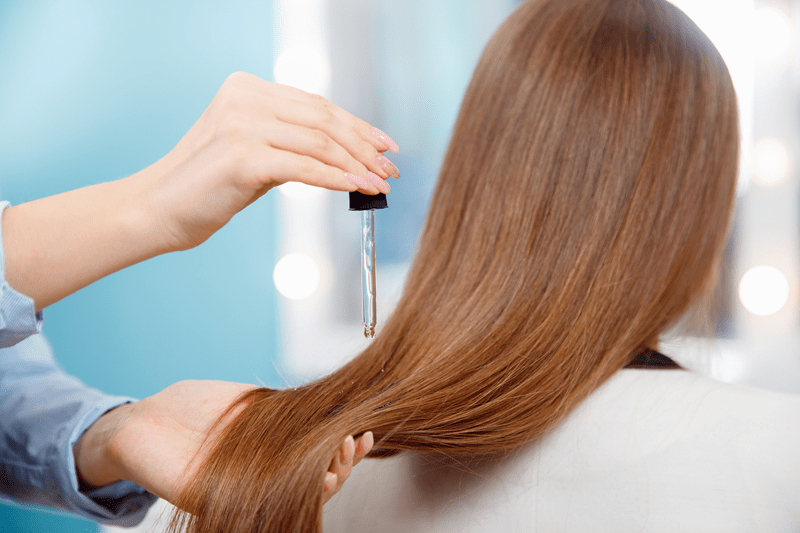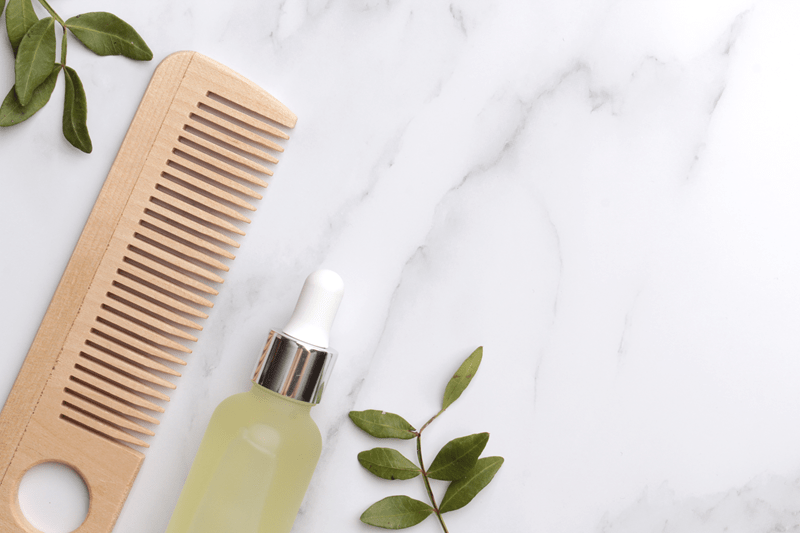
Great, healthy-looking hair is not a matter of luck - an effective routine and some carefully selected products can be a real game-changer. Among the most effective, affordable, and multi-functional ones are oils. Here, let’s walk you through the very best hair oils for most uses (gloss, moisturizing, scalp health), how they work, and provide handy hair nutrition tips you can use right away. We'll be discussing four superstar oils you may have already heard of: argan oil, coconut oil, jojoba oil, and castor oil - their comparisons, usage tips, and best practices.
Hair oiling can:
Think of the best hair oils as workhorses: some are light and ideal for daily smoothing, others are more indulgent and ideal for application in overnight treatments. The best one is picked based on your hair type, requirements, and time available.
Argan oil ("Moroccan oil") is usually listed among the best hair oils because of its rich content of vitamin E and essential fatty acids. Due to being light, in contrast to thicker oils, it's ideal for giving shine and getting rid of frizz without burdening hair.
Applying argan oil:
Argan oil restores shine and smoothness, making it a go-to choice in hot, humid, or dry climates across the U.S., from sweltering summers in the Southeast to dry, cold snaps in the Mountain West. It's among the most effective hair oils to use on color-treated hair since it is typically gentle and non-greasy.
Coconut oil is loved for its ability to penetrate the hair shaft from its high lauric acid content. That will enable it to retard protein loss and strengthen strands when applied as a pre-wash or as a mask treatment.
Instructions on how to use coconut oil:
One of the best hair repair oils, when used correctly, is coconut oil. Another favorite hair nutrition hack: utilize coconut as a once-weekly pre-shampoo treatment rather than daily, if your hair is fine or tends to look oily.

Jojoba oil is unique in that its molecular structure most closely duplicates human sebum, the natural oil your scalp produces. That makes it an excellent choice to balance the scalp while supporting dryness without causing pores to clog.
Using jojoba oil:
Because it so closely resembles natural oils, jojoba oil is one of the best hair oils for those who need conditioning without weight. A convenient hair moisturizing trick: if you have a flaky scalp but despise greasy residue, jojoba oil is a gentle one to try out.
Castor oil is a heavy oil with a thick consistency and a solid reputation for ricinoleic acid. It's not a light-finish serum, but it is a very strong solution for treatments-in-a-spot - especially on thicker, heavier hair or on those who want to condition weak ends and get the scalp circulation flowing through massage.
Castor oil application:
Castor oil is occasionally among the finest oils for improving the look of heavy, coarse, or broken hair if used properly. Helpful hair moisturizing trick: dilute it - pure castor oil alone is hard to apply and tricky to rinse out.
You don't necessarily need to pick one. Many users like blends because they experience the benefits of several oils with better texture and functionality. For example:
Mixing some argan into your styling cream can also make a product perform the function of a heat protectant. Blends are a stroke of genius for mixing some of the finest hair oils in a fashion that caters to your personal needs.
Start with less than you think you need. It's easy to add more; it's harder to get greasy-looking oil out of hair.
Frequency will be determined by your lifestyle and your hair: busy individuals with frequent shampooing may enjoy light daily or every-other-day application of argan or jojoba. Individuals with less frequent shampooing might enjoy heavier weekly coconut or castor treatments.
Use sulfate-free shampoos when oiling regularly - they wash out oil without robbing natural moisture too much.
These homemade remedies utilize some of the best hair oils to good effect, complemented by sound hair nourishment advice.
Adjust oil application according to hair type. Apply small amounts for fine hair, and rinse thoroughly after deep treatments to prevent buildup.
Choosing among the higher-end hair oils doesn't have to be daunting. Argan oil, coconut oil, jojoba oil, and castor oil each offer something unique: shine, deep conditioning, scalp balancing, and focused restoration. Use them separately or combined, follow the directions for your hair type, and keep a few hair nutrition tips in mind (begin gradually, patch test, and coordinate treatment frequency with your lifestyle). With the right oil and routine, you’ll notice a smoother texture, healthier-looking ends, and a boost in natural shine - no miracle cure required, just consistent care and the right choices.
This content was created by AI